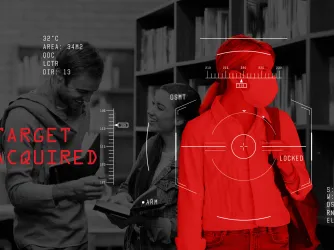Table of Contents
Yale Profs in ‘NYT’ Op-Ed: ‘Why College Is Not Home’

In a thoughtful piece in today’s New York Times, Yale University physics professor A. Douglas Stone and Dr. Mary Schwab-Stone, a psychiatrist and former Yale psychology faculty member, revisit the Erika Christakis debacle from last fall at Yale. They argue that overprotective universities stunt student growth by removing development-critical challenges on the path to adulthood:
The college years — a time for important growth in autonomy and the consolidation of adult identity and life goals — have evolved into an extended period of adolescence during which many of today’s students are not saddled with adult responsibilities.
Torch readers will remember our early reporting on the Yale Halloween costume incident last fall, punctuated by calls for “safe spaces” on campus by Yale students. Christakis touched off the tempest with an email to students in the Silliman dormitory she and her husband helped oversee.
In the email, Christakis, who taught a popular child development course before deciding not to teach at Yale following calls for her and her husband to resign from their positions at Silliman, wrote candidly about a recent request from Yale administrators that students exercise cultural sensitivity in their choice of Halloween costumes. Christakis asked whether university officials ought to be dictating what students should wear and argued that students at one of the world’s elite institutions of higher education might be capable of deciding for themselves. Moreover, Christakis pondered whether such a mandate detracted from the educational experience of college itself:
[S]peaking as a child development specialist – I think there might be something missing in our discourse about the exercise of free speech (including how we dress ourselves) on campus, and it is this: What does this debate about Halloween costumes say about our view of young adults, of their strength and judgment?
In other words: Whose business is it to control the forms of costumes of young people? It’s not mine, I know that.

In today’s New York Times piece, slated to appear in Sunday’s print edition of the paper, Stone and Schwab-Stone expand on Christakis’ points, blaming helicopter parents and—if we may coin a new term—helicopter college administrators for “[giving] in to the implicit notion that they should provide the equivalent of the home environment”:
Small wonder that among the angry expressions flung at the Christakises was the plaintive cry, “It is your job to create a place of comfort and home.” But college is a different kind of community than a family, and its primary job is education of the student and adaptation to independent community living.
The authors remind us that “the encroachment of behavioral guidelines into the social and even intellectual spheres comes at a cost,” one that leaves students ill-equipped for adulthood:
To prepare for increased autonomy and responsibility, college needs to be a time of exploration and experimentation. This process entails “trying on” new ways of thinking about oneself both intellectually and personally, which is possible only if a certain degree of freedom is allowed. While we should provide “safe spaces” within colleges for marginalized groups, we must also make it safe for all community members to express opinions and challenge majority views. Intellectual growth and flexibility are fostered by rigorous debate and questioning.
FIRE agrees, and we hope college administrators striving to create emotionally safe spaces for their students realize they can do more harm than good. Too often, safe spaces leave campuses unsafe for free speech and, in turn, for education.
Recent Articles
Get the latest free speech news and analysis from FIRE.

Will free expression make a comeback at Haverford College?

FIRE statement on FCC approval of Skydance-Paramount acquisition

The mercenary spyware industry is a menace to global free expression
